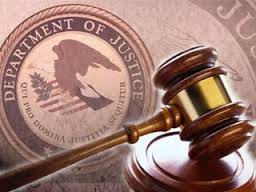Corporations Need to Say the Words – “Let’s Go to Trial”
 Companies are reluctant to go to trial in a criminal case. Instead, they look for alternatives short of a criminal guilty plea and DOJ has a suitcase full of options that they use.
Companies are reluctant to go to trial in a criminal case. Instead, they look for alternatives short of a criminal guilty plea and DOJ has a suitcase full of options that they use.
Please do not misunderstand my point – DOJ prosecutors are doing their job and they apply the law fairly. There is room for disagreement on their interpretations and application of the law to the facts. That is where a judge and a jury come into play.
Prosecutors know that companies will not go to trial. As a result, defense lawyers representing companies have to win their case pre-indictment: they have to investigate for — and negotiate with — DOJ prosecutors.
The current system is premised on the idea that if a company is convicted, the company will implode because of collateral consequences. The case of Arthur Andersen is cited as the poster child for this result.
The premise is no longer accurate. Companies have pled guilty to criminal offenses, including heavily regulated financial institutions (e.g. BNP Paribas and HSBC), and the companies survived. Of course, these are well-established, large multinational companies that have the resources to ensure their continued viability.
There may be circumstances where companies may not be able to survive after a criminal conviction. A mid-sized defense contracting company convicted of a crime may not be able to survive debarment from contracting.
Interestingly, two significant companies thumbed their respective noses at the government and are going to trial.
Federal Express has been indicted for conspiracy to distribute controlled substances and money laundering for its delivery of prescription medications from suspect website pharmacies. Federal Express is launching a vigorous defense, claiming that they were not aware of the contents of the packages they delivered and that they did not know that illegal pharmacies were their customers.
Pacific Gas & Electric was indicted on twenty-nine counts, including obstruction of justice and violation of pipeline safety laws, arising from the explosion of its gas pipeline at San Bruno, California in which eight people were killed and 66 people injured. So far, PG&E has fought the criminal charges and intends to take the matter to trial.
 Companies have to be careful in this area. It is one thing to go to trial; it is quite another to win the trial. Like individual defendants, companies have a right to a jury trial. But that is a two-edged sword. Juries are predisposed to convict companies because juries recognize that no one goes to jail and they frequently have their own complaints about companies and business conduct.
Companies have to be careful in this area. It is one thing to go to trial; it is quite another to win the trial. Like individual defendants, companies have a right to a jury trial. But that is a two-edged sword. Juries are predisposed to convict companies because juries recognize that no one goes to jail and they frequently have their own complaints about companies and business conduct.
Companies can raise vigorous legal challenges to a government indictment, and can specifically challenge the government’s theories of liability. In addition, companies can raise significant challenges to the judge when there are issues surrounding the sufficiency of the evidence to convict the company for a specific charge.
Companies face real risks when going to trial. But in certain cases such challenges may be appropriate. Companies should avoid knee-jerk decisions to avoid a trial. It is an important issue that requires careful balancing of the pros and cons of fighting a criminal case.















